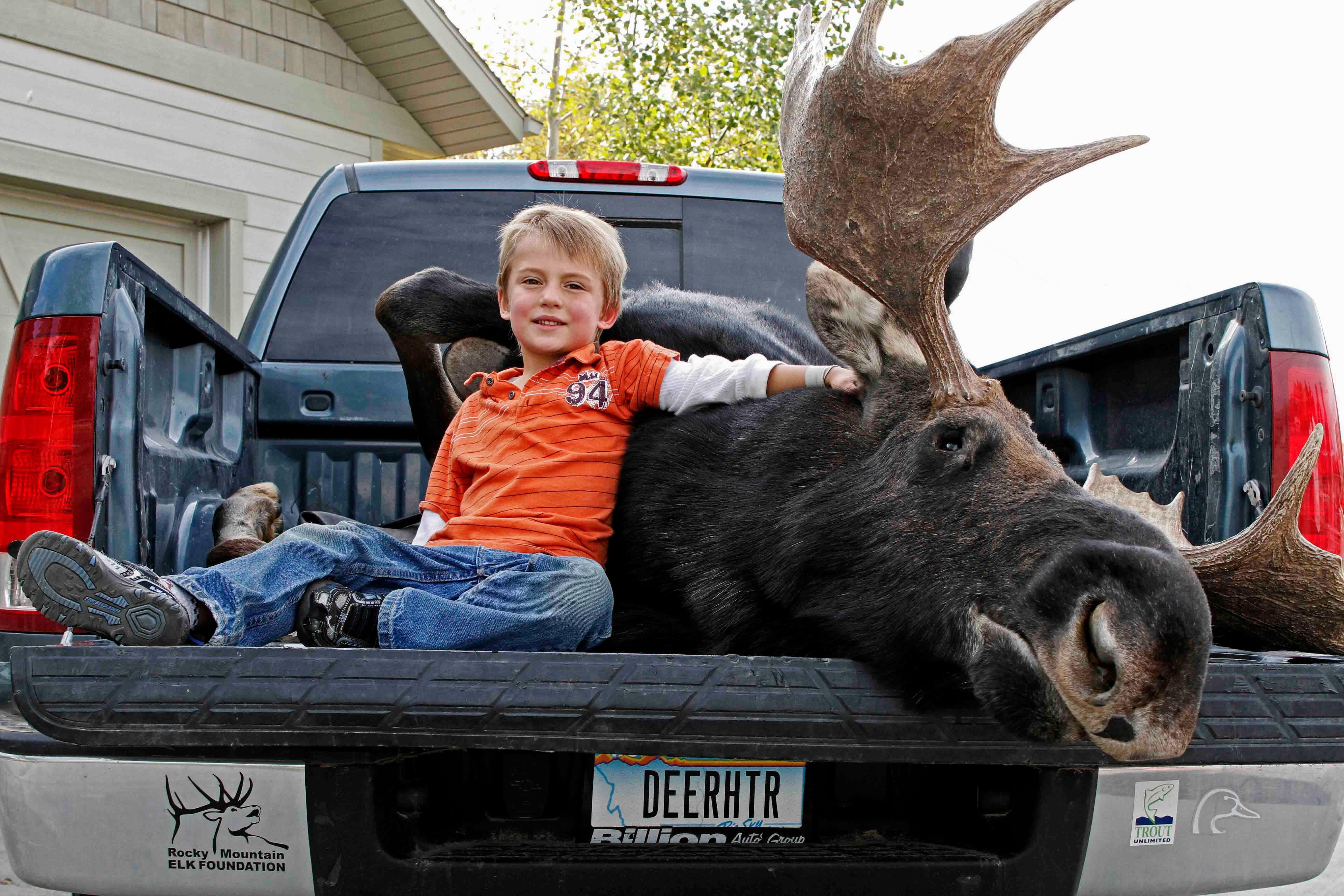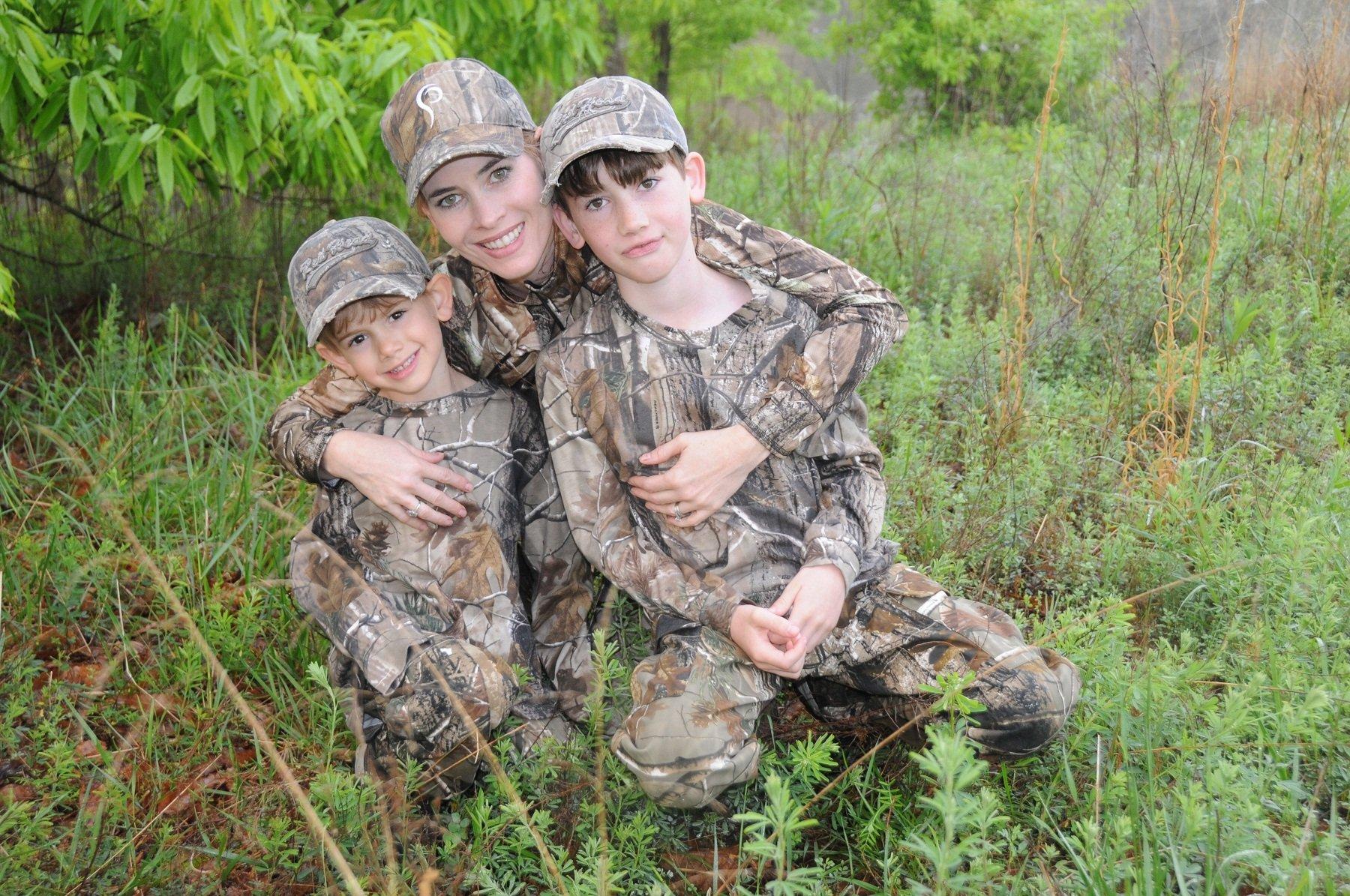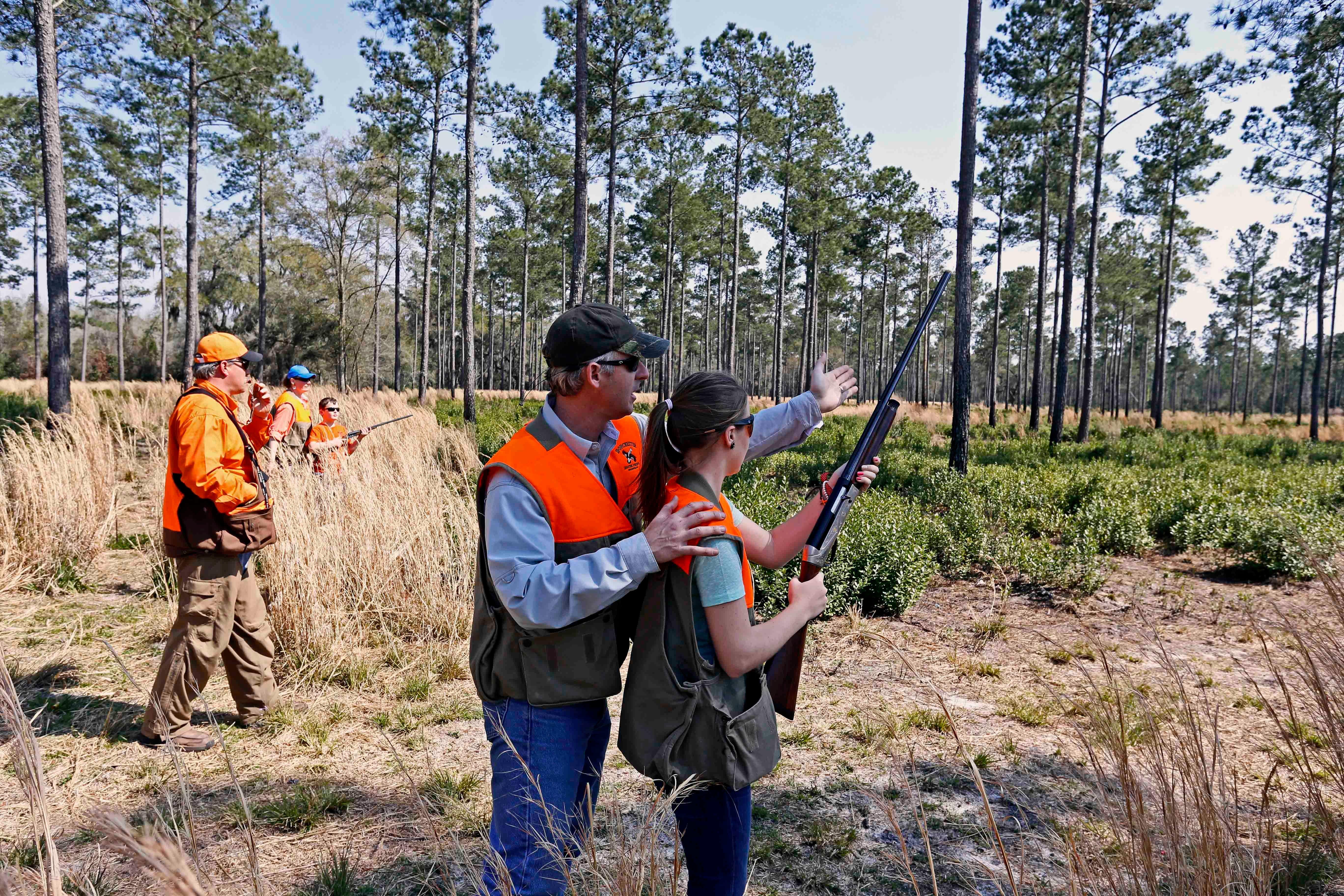Introducing Kids to Hunting In the Wrong Way Can Cause Them to Never Want to Go Again

I was looking forward to my first turkey hunt with my two young boys. I'd envisioned a quiet, peaceful morning in the blind while we waited for the birds to show up. I'd already talked with them extensively, and had explained what a privilege going hunting is. I felt sure they would behave in a way that reflected their gratefulness for the opportunity. And of course, I would exude patience and wisdom, while imparting my knowledge of hunting and passing down our treasured family hunting traditions.
Yeah, whatever.
We barely made it into the blind the next morning before our sacred first turkey hunt was ruined by yelling, temper tantrums and even a few shed tears. I realize this was no way for a mom to act. But my kids started it.
In all seriousness, we had a bad experience, and I was to blame. You can read about our awful hunt in my blog My Less-Than-Perfect Family Turkey Hunt.
Now I realize that I made a number of mistakes. Lindsay Thomas, director of communications for the Quality Deer Management Association, has many years of experience hunting with kids. He conducts an annual father-son and father-daughter hunt with a number of friends and family members. He says although parents usually have the best of intentions when taking their kids hunting, a number of mistakes can actually prevent children from developing a love for hunting. Here are the 10 most common offenders.

1. Unrealistic Expectations
This was my first mistake. Young kids are going to be noisy and restless. They'll want to explore, talk and ask questions. So you should expect and encourage them to do so. Instead of keeping your kids still for long periods of time, keep hunts short and active. Small game hunts are great options because they provide opportunities for talking and moving. If you're going to take your young child on a deer hunt, limit it to 45 minutes or an hour, and make it a walking/moving type of hunt. Slip along through the woods. Stop and talk about what you see and hear. It's all about the experience.
2. Not Emphasizing Safety
Safety should be your No. 1 priority when hunting with kids. Accidents can happen to anyone, and hunting with someone who is inexperienced increases the likelihood. Don't assume your child knows the ins and outs of hunting safety. Take the time to not only teach him or her about safety, but set an example by your own safe habits and behaviors.
3. Putting Other Goals Ahead of Fun
If young kids don't have fun the first couple of times they hunt, they won't want to go back. Make a game out of identifying birds or trees, and collect leaves, rocks and other items to encourage learning and involvement. Let them bring along books, crayons, toys or even electronics to provide a bit of entertainment when the action slows down.
When my son, Jake, was little, someone gave him a Bill Jordan action figure, Thomas said. The toy came with camo clothing, binos, boots, skinning knives, a backpack and other accoutrements. Jake always brought that toy and accessories hunting with us. Once we'd get set up in the woods, whether we were in a ground blind or treestand, Jake would then set up his Bill Jordan toy. He'd get out the toy's bow, put arrows in its hand, etc. Sure, setting the toy up increased movement, but the goal was to have fun, and that, he did.

4. Being Inadequately Prepared
Taking kids hunting with inadequate gear, food or drinks will ruin a hunt fast. Kids get hungry and thirsty more often than adults, and a rumbling tummy makes for a fussy kid. Drinks and food break the monotony, so bring plenty. Kids also get cold much easier than adults, so bring extra warm clothing and raingear. And, don't leave home without Band-Aids, antibiotic ointments and other first-aid items on-hand in case your child gets a minor injury. If you have young children, then you understand the magic of Band-Aids.
5. Expecting Kids to Shoot Before They're Ready
While there is no set minimum age for a child to shoot his or her first animal, it's up to you to make a wise call as to when the child is ready. Letting a child shoot a gun or kill an animal before he or she is mentally or physically equipped can quell his or her passion for hunting. Let your child tell you when he or she wants to shoot an animal. Don't push it.
Thomas says when parents begin pressuring their kids to take the shot, it becomes about what the parent wants and not what is best for the kid. If the child simply just wants to go along with the parent and not take a shot, then that should be fine. There are so many ways to measure the success of a hunt. It shouldn't be just about the kill.
6. Taking Your Kids into Harsh Conditions for Too Long
Sometimes the adversity is part of the adventure, Thomas said. But if you're hunting in extreme cold, keep the hunt short and make sure everyone has adequate clothing.
On the first morning of one of their annual father and son hunts, Thomas and the other hunters woke up to 18-degree temperatures. They bundled up and went anyway, although they only hunted for 45 minutes.
The moment the kids started getting too cold, we left, Thomas said. The extreme cold was part of the fun, but you don't want to push it. The moment your kid is not having fun, it's time to return home.
7. Unintentionally Setting up for Failure
If your child does want to try to shoot an animal, then make sure your child has practiced with the bow or gun he or she plans to use. Don't just put a gun in your child's hand on the day of the hunt and expect him or her to make a good shot.
Nothing can ruin a hunting experience more than wounding an animal, Thomas said. Every hunter experiences that from time to time, but it can be especially devastating to a child. Do all you can to help prevent that from happening. If your child feels confident with the gun or bow he or she is using, the chances for success increase.
8. Doing Everything for Your Kids
Let your kids actively participate in the planning of the hunt, as well as in the day's activities. Let your child pack his or her backpack, prepare snacks, navigate using a map or compass and pick a hunting local. I like to let my kids blood trail if one of us shoots a deer, Thomas said. I look for opportunities that provide good learning experiences. Some of these activities may be a bit difficult, but let them struggle. We all learn through our struggles.
9. Shaming a Child For Feeling Sad After a Kill
Children may feel a sense of sadness after a kill, and may even cry. When this happens, some adults will ignore or try to dismiss their child's feelings, or they may even try to shame them for feeling sad. Instead of ignoring or shaming your child, validate his or her feelings, Thomas says. Use the opportunity to talk to your child about how hunting contributes to conservation, provides healthy meat for the table and is an opportunity to enjoy the great outdoors.

10. Pushing Too Hard to Go Hunt
Not every child is going to want to go hunting, and that's OK. Don't force it. The more someone feels pushed into doing something, the less he or she will want to do it. That's just human nature. Back off and eventually your child may ask to go. If your child once enjoyed hunting, but stops going as a teenager, don't worry. Chances are good he or she will pick up their hunting activities again once they become young adults.
So there you have it. Ten of the most common mistakes adults make when hunting with kids, although I'm sure you can think of several more. But remember, although you'll no doubt make some mistakes along the way, the time you spend outdoors with your children will produce some of your most cherished memories and will instill within them a passion that will be passed along for generations to come.
Don't Miss: Non-Hunting Parents With Children Who Want to Hunt
Editor's Note: This was originally published on July 21, 2014.
Are you a hunter wanting to learn how to accomplish your goals? Check out our stories, videos and hard-hitting how-to's on big game hunting.





































